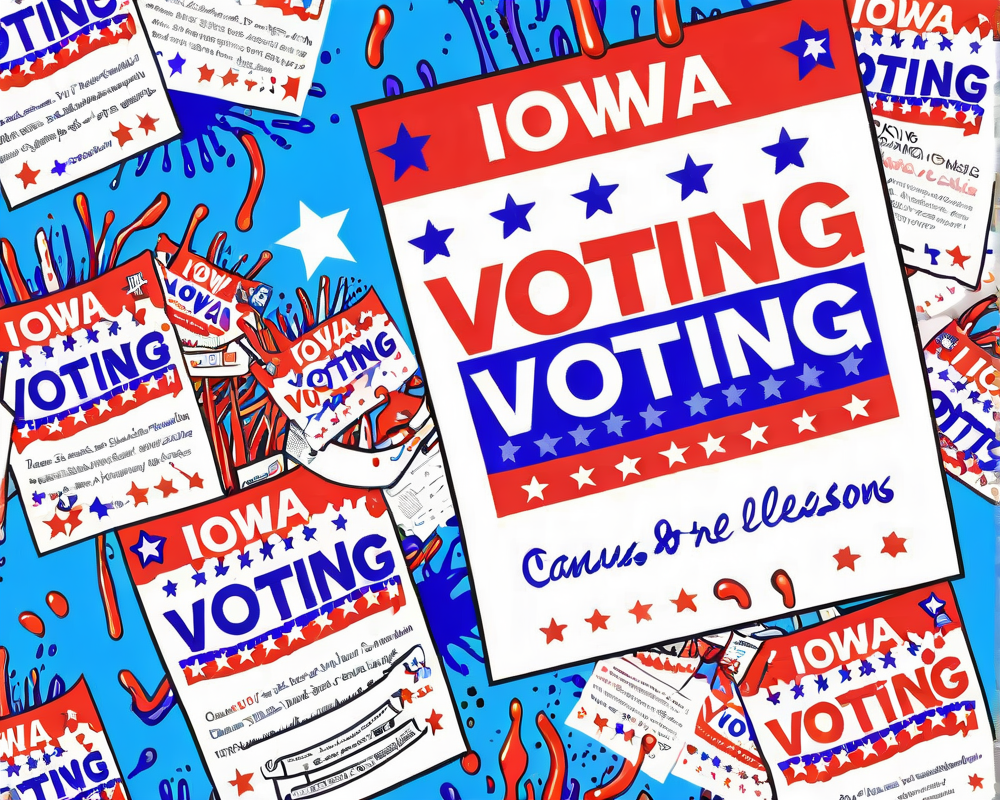When Apps Attack: A Caucus Catastrophe
Ah, Iowa—the land of corn, pork chops, and a voting app disaster so colossal that it made even the eternal optimists question the tech. This hiccup emerged when the application designed to tally votes simply decided to take a vacation, leaving the Democratic Party scrambling to hold off announcing the results. The coding blunders became the stuff of political legend, rife with inaccuracies and malfunctions that sent the party into disarray.
Meet the Culprits: Shadow Inc.
So, who’s behind this smartphone scandal? Enter Shadow Inc., a tech startup that seems more mysterious than your neighbor’s pet cat. Founded by Gerard Niemira and Krista Davis—two folks more known for championing Hillary Clinton’s 2016 campaign than building robust software—the firm quickly became infamous after being acquired by Acronym, a nonprofit with connections to Democrats faster than you can say “Do We Really Trust This App?”
High-Profile Connections
The CEO of Acronym is Tara McGowan, a former digital journalist whose resume glitters with ties to the Obama campaign. She’s married to Michael Halle, a senior strategist for Pete Buttigieg, who, oddly enough, proclaimed his victory before the votes were even counted. Talk about timing—or maybe just a touch of wishful thinking!
Separating Mobile Voting from I’m Trying My Best
Despite the chaos, the blame was swiftly redirected from mobile voting technology to the problematic app. Voices from the industry, including statements from Voatz, a blockchain voting firm, made it clear: This isn’t what mobile voting should look like. “Using an app to tabulate in-person caucus votes is not mobile voting,” they asserted—because we all know there’s a political life lesson lurking in the app store.
Innovation Amidst Skepticism
In a bid to shed light on mobile voting, experts like Pete Martin of Votem Corp. argue that the Iowa incident has been blown out of proportion. “The real scandal here is how we’ve overlooked past protests regarding paper-based elections,” he quipped, reminiscing about Florida’s infamous voting debacle in the early 2000s. Challenge accepted! Mobile voting isn’t all gremlins and glitches; it’s a revolution—if the old-school powers could let it thrive.
Blockchain: The New Hope?
The blockchain conversation continues, with advocates claiming it’s not just a tech buzzword—it’s the future. Rachel Livingston from Tusk Philanthropies argued that despite the hiccups, mobile voting is a burgeoning reality, already in use across various states. Would you trust software that’s remained in the shadows or go for transparency?
The Road Ahead: Why Voters Want Change
Let’s address the elephant in the room—voter turnout has been sliding faster than a toddler on a wet slide. The 2016 presidential race saw just 55% of the voting-age population reel in their ballots, one of the lowest numbers post-1996. But could mobile and blockchain voting keep us from repeating history?
Promises of Transparency
The blockchain industry has risen as an unexpected ally, offering immutable records that make tampering nearly impossible—like the desired outcome of a well-cooked Thanksgiving turkey, minus the disappearing gravy. Politicians including Andrew Yang have openly supported mobile voting systems as a means to restore trust in elections.
Can Alexa Vote Next?
While most mobile systems have jumped on the blockchain bandwagon, there are some leaning towards different tech solutions like AWS. One thing’s for sure: no one wants another Iowa fiasco. We’ve had enough drama—after all, voting should be about who you want in office, not who’s mourning the loss of a digital app!




